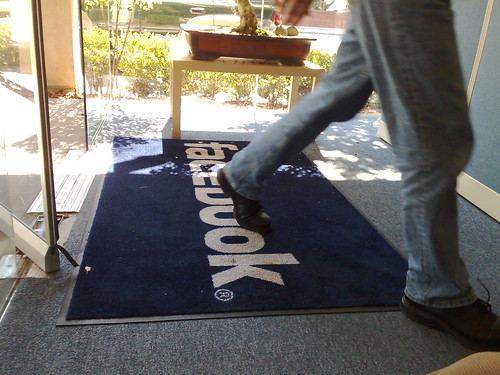“The Instagram effort is one that we predicted for a long time,” says Button CEO Michael Jaconi. “I wasn’t the most popular guy in the venture capital pitch room saying hey, the world is moving to commerce. They said advertising makes so much money. In reality, what I think Facebook is doing is very smart. They’re trying to habituate consumers around driving transactions from their platform. For the future of advertising, especially in mobile, the way that you’re going to be able to make money and build durability into your business model is to give consumers what they want.”
Michael Jaconi, CEO of Button, discusses how mobile commerce is rapidly replacing ads as the primary revenue source for publishers and social platforms such as Facebook and Instagram in an interview on Bloomberg Technology.
We’re Trying To Build an Internet Built on Actions, Not Ads
The Button platform really sits above the stack. Where we sit is really in this place where publishers integrate with Button to connect their consumers to their next step. What we’re trying to build is an internet that we think is going to be better, and an internet built on actions, not ads. What the publisher technology that we built does is it sits inside of an application, renders an actual button, and then connects them to the place of intent that their users ultimately may want to go. Whether that’s a mapping app going to Uber or an app like rewardStyle that is powering an influencer network to drive sales at ASOS.
There’s a lot of change happening and Button is trying to invest in that ourselves. You’re seeing the platform’s, Apple and Google, do a lot to make this easier with Facebook’s recent launch of Instagram Checkout. You’re obviously seeing that they’re investing a ton in making the checkout process more seamless. What we fundamentally believe when we started the company was that if we could build a method that would make consumers have a delightful experience, giving from that moment of intent to the moment of fulfillment, saying hey, I want a ride or I want to book a reservation, and having that be as few taps as possible, we would win and the companies that we’re building on top of our platform would win.
You’re seeing innovation happen with sign-on and the actual account credentials being passed more easily between experiences. Apple Pay, of course, the Google Checkout experiences and PayPal is making this easier. You’re seeing strides being made but there’s still a long way to go. It’s still a lot easier to purchase on your PC unfortunately.
Facebook Trying To Habituate Consumers Around Driving Transactions
In our judgment, we think that the Instagram effort is one that we predicted for a long time. I wasn’t the most popular guy in the venture capital pitch room saying hey, the world is moving to commerce. They said advertising makes so much money. In reality, what I think Facebook is doing is very smart. They’re trying to habituate consumers around driving transactions from their platform. Everyone is looking at Amazon with a little bit of fear and a little bit of jealousy. What you’re seeing is that they’re looking at Amazon’s power as being the habituated source of transactions. They are saying look at how Amazon is growing its ad business.
If you look at Amazon’s business, the fastest growing channel it’s had in terms of revenue growth has been its advertising business for the past eight quarters in a row. What’s fascinating about that is that every company wants to grow and be a part of that puzzle or that story. That’s the thing that we’re seeing grow most quickly. For the future of advertising, especially in mobile, when display and all types of advertising are under fire, the way that you’re going to be able to make money and build durability into your business model is to give consumers what they want. For us, we’re trying to give that power to every publisher that exists and to every company that has intent.


